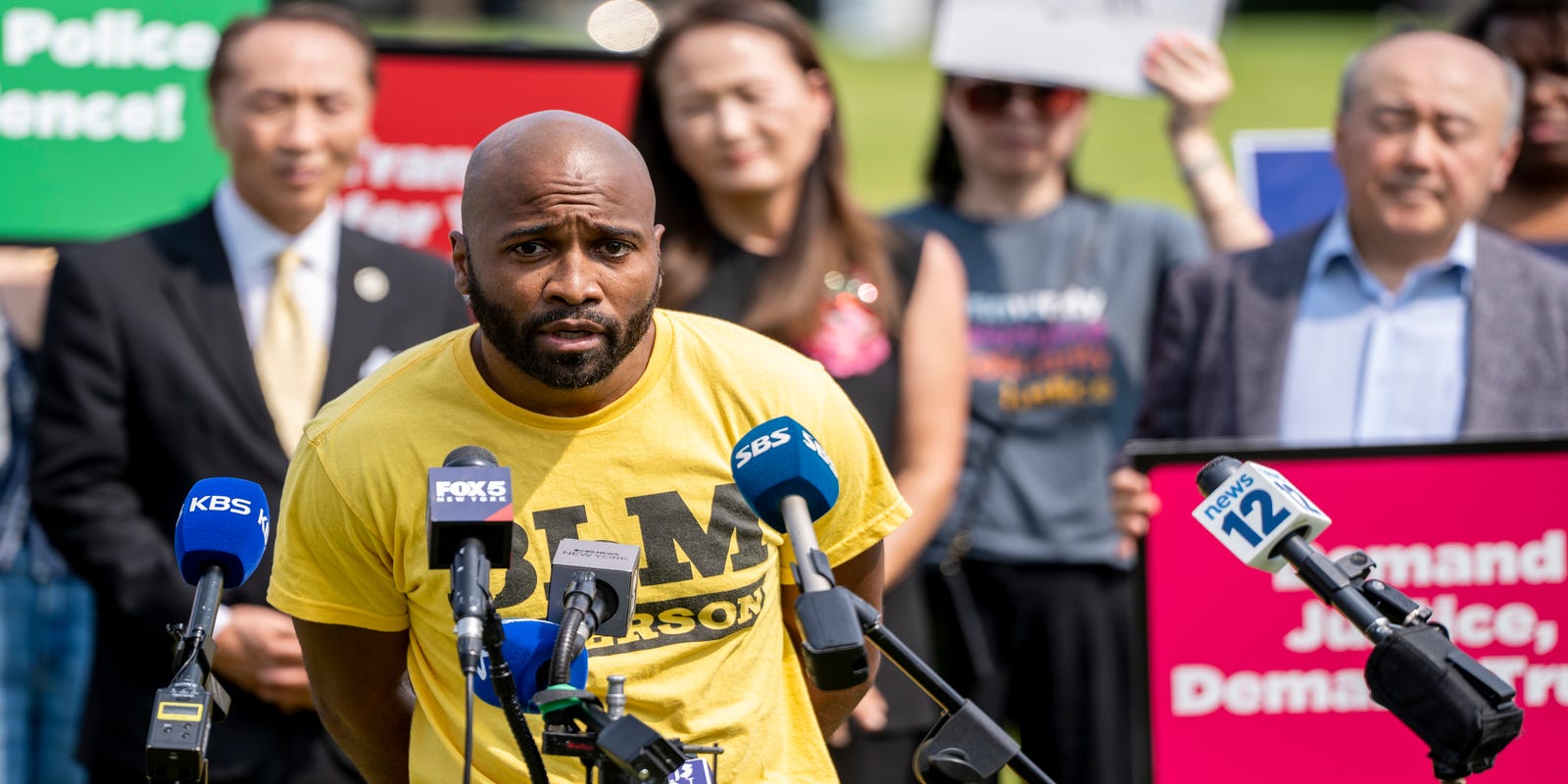Silent Suffering: Black Mothers Confront a Healthcare Crisis
Health
2025-04-13 14:48:56Content

Maternal Health Awareness Week: Confronting Racial Disparities in Childbirth
This powerful week serves as a critical national call to action, shining a spotlight on the urgent need to address the stark racial inequities plaguing maternal healthcare. At the heart of this movement is a profound commitment to amplifying the voices and experiences of Black women, who continue to face disproportionate challenges in pregnancy and childbirth.
The week-long campaign goes beyond mere awareness, demanding systemic changes and highlighting the deeply rooted disparities that put Black mothers at significantly higher risk during pregnancy and delivery. By bringing these critical issues to the forefront, the initiative aims to spark meaningful dialogue, drive policy changes, and ultimately save lives.
Through education, advocacy, and community engagement, Maternal Health Awareness Week challenges healthcare providers, policymakers, and society to confront the unconscious biases and structural barriers that contribute to these devastating health inequities. It is a passionate plea for justice, compassion, and equitable healthcare for all mothers, regardless of race or background.
Breaking Barriers: The Critical Fight for Black Maternal Health Equity
In the complex landscape of healthcare disparities, one issue stands starkly illuminated: the profound challenges facing Black women in maternal health. This narrative transcends mere statistics, delving into a systemic crisis that demands immediate societal attention and transformative action.Confronting a Silent Healthcare Emergency
Historical Roots of Systemic Inequity
The roots of maternal health disparities run deep within the American healthcare system, tracing back to centuries of structural racism and systemic marginalization. Black women have consistently faced disproportionate challenges in receiving comprehensive, compassionate medical care during pregnancy and childbirth. These disparities are not merely statistical anomalies but reflect deeply entrenched societal inequalities that permeate medical institutions. Research consistently reveals alarming trends: Black women are three to four times more likely to experience pregnancy-related complications and mortality compared to their white counterparts. This stark reality stems from a complex intersection of socioeconomic factors, implicit bias in medical settings, and generational healthcare neglect.Comprehensive Healthcare Access Challenges
Access to quality healthcare represents a critical battleground in addressing maternal health inequities. Many Black communities confront significant barriers, including limited healthcare infrastructure, financial constraints, and a profound lack of culturally competent medical professionals. These challenges are not abstract concepts but lived experiences that directly impact maternal and infant health outcomes. Rural and urban Black communities often navigate healthcare deserts, where specialized maternal care is scarce or prohibitively expensive. The compounding effects of economic marginalization, limited insurance coverage, and systemic discrimination create a perfect storm of healthcare vulnerability.Psychological and Emotional Dimensions
Beyond physical health metrics, the psychological toll of these disparities cannot be overstated. Black women frequently report experiencing medical gaslighting, where their pain and concerns are systematically dismissed or minimized. This emotional trauma compounds the already significant stress of pregnancy and childbirth. Mental health support remains critically underaddressed, with cultural stigma and limited resources further exacerbating psychological challenges. The intersectionality of race, gender, and healthcare creates a complex landscape where emotional well-being is perpetually compromised.Innovative Solutions and Community Empowerment
Addressing maternal health disparities requires a multifaceted approach that centers Black women's experiences and agency. Community-driven initiatives, culturally responsive medical training, and policy interventions represent promising pathways toward meaningful change. Emerging models of care emphasize holistic support, including doula services, community health workers, and targeted prenatal education programs. These approaches recognize that effective healthcare extends far beyond clinical interventions, demanding comprehensive social support and systemic transformation.Policy and Advocacy Landscape
Legislative efforts are increasingly recognizing the urgent need for targeted interventions. Recent policy proposals aim to expand Medicaid coverage, increase funding for community-based maternal health programs, and mandate implicit bias training for healthcare professionals. Grassroots organizations and advocacy groups continue to play a pivotal role in amplifying Black women's voices, driving policy changes, and challenging entrenched systemic inequities. Their work represents a critical mechanism for translating awareness into tangible, sustainable change.Future Horizons: Reimagining Maternal Healthcare
The path forward demands collective commitment, institutional accountability, and a fundamental reimagining of healthcare paradigms. By centering Black women's experiences, investing in comprehensive support systems, and dismantling systemic barriers, we can envision a future of equitable, compassionate maternal healthcare. This is not merely a healthcare challenge but a profound moral imperative that speaks to the core of social justice and human dignity.RELATED NEWS
Health

GOP Health Care Overhaul: Millions at Risk of Losing Coverage, Costs Set to Soar
2025-04-29 21:22:43
Health

Teladoc Health Unveils Q4 Earnings: Telehealth Giant's Financial Pulse Revealed
2025-02-27 04:00:19
Health

Genetic Time Bomb: Rishi Sunak's Controversial Stance on Cousin Marriage Sparks Heated Debate
2025-03-09 16:54:42





